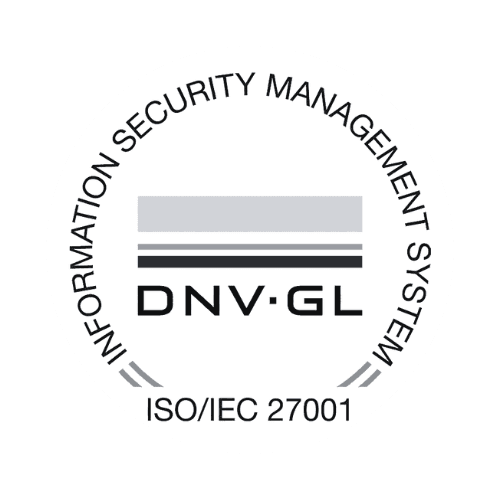Nichts verpassen & anmelden:
Written by AI
Remote learning for employees: Effective further education in the digital work environment
Remote learning, also known as online learning or e-learning, is of great importance in today's digital work environment. This form of further education enables companies to offer their employees flexible and effective learning regardless of location and time. In this article, we will examine the advantages of remote learning for companies, the challenges that come with it, as well as the key components of an effective remote learning strategy. Additionally, we will take a look at best practices for implementing remote learning and the potential future of this type of learning.
The importance of remote learning in the modern work environment
The modern work environment is constantly evolving, and companies need to ensure that their employees keep up with the latest developments. Remote learning offers companies an efficient way to continuously further educate their employees without requiring additional travel expenses or work time.
With remote learning, employees can access a variety of learning content, whether in the form of video tutorials, interactive courses, or online discussion forums. This allows them to expand their knowledge and skills at their own pace and according to their own needs.
Remote learning has become a popular method of further education in recent years. More and more companies recognize the benefits of this flexible form of learning and successfully implement it. But what specific benefits does remote learning offer for companies?
Benefits of remote learning for companies
Remote learning offers companies a variety of benefits. First, it allows employees to continuously further educate themselves, leading to improved performance and productivity. By being able to acquire new skills and knowledge, employees can better respond to the changing requirements of the company.
Second, remote learning enables companies to train their employees regardless of their location. This is particularly helpful for globally operating companies with distributed teams. Through remote learning, all employees can access the same training resources, regardless of whether they are in the office, at home, or traveling.
Furthermore, remote learning significantly reduces training costs. Companies do not have to organize expensive in-person training sessions that include travel and accommodation costs for the employees. Instead, they can use cost-effective e-learning platforms that allow employees to conduct their training online.
However, remote learning not only offers benefits but also presents some challenges that companies should consider.
Challenges of remote learning
Although remote learning offers many benefits, there are also challenges that companies should consider. One of the biggest challenges is ensuring that employees remain motivated and engaged while learning remotely. Without the personal contact with trainers or colleagues, it can be difficult to maintain learning motivation.
Another issue is ensuring the quality of the training content. Companies need to ensure that the offered learning materials are relevant, well-structured, and engaging. They should also monitor whether employees actually understand the content and are able to apply what they have learned in practice.
Despite these challenges, remote learning is a valuable method for continuously educating employees and giving them the opportunity to adapt to the constantly changing requirements of the modern work environment.
Key components of an effective remote learning strategy
In order to effectively design remote learning, there are some important components that companies should consider.
Implementing a remote learning strategy requires not only the selection of the right tools and platforms but also targeted planning and implementation. It is crucial that companies consider the individual learning needs of their employees and offer customized learning solutions.
Selection of the right learning platform
The selection of the right learning platform is crucial for the success of remote learning. Companies should choose a platform that is user-friendly, supports a variety of learning content, and allows employees to track their learning progress.
The platform should also have features that promote interactive learning, such as discussion forums, quizzes, or live webinars. This allows employees to actively apply their knowledge and interact with other learners.
Another important aspect in choosing a learning platform is security and data protection standards. Companies should ensure that the platform complies with applicable regulations and protects the sensitive data of employees.
Designing interactive and engaging learning content
To keep employees' attention, it is important to design learning content in an interactive and engaging manner. Companies can achieve this by using multimedia elements such as videos, graphics, or simulations.
It is also important to divide the learning content into small, easily digestible units and give employees the opportunity to test their knowledge through exercises or tests. These interactive elements make learning more effective and enjoyable.
An additional approach to designing engaging learning content is the integration of gamification elements. By incorporating playful elements such as point systems, leaderboards, or rewards, employees can be motivated to actively participate in the learning process and continuously expand their knowledge.
Best practices for implementing remote learning
In order to successfully implement remote learning in companies, there are some proven practices that should be considered.
Promoting employee participation
It is important to actively involve employees in the learning process and ensure that they can identify with the training content. Companies can achieve this by involving employees in the selection of learning content or giving them the opportunity to apply their acquired knowledge in practice.
Creating a culture of learning where continuous learning is promoted can increase employee participation. This can be done through the introduction of reward programs or the recognition of achievements in the field of remote learning.
In addition, companies can establish virtual learning groups or discussion forums where employees can share their knowledge and learn from each other. This not only promotes employee participation but also creates a supportive community where employees can motivate and support each other.
Continuous monitoring and improvement of the learning process
In order to ensure that remote learning is effective, companies should constantly monitor the learning process and make improvements as needed. This can be achieved through regular feedback surveys or the analysis of learning progress and results.
It is also important to provide regular feedback to employees and give them the opportunity to share their experiences and concerns related to remote learning. This way, companies can continuously optimize the learning process and respond to the needs of employees.
In addition, companies can use innovative technologies and tools to improve the learning process. For example, virtual classrooms or interactive learning platforms can be used to provide employees with an interactive and engaging learning experience.
Another important aspect of implementing remote learning is providing resources and support for employees. Companies should ensure that employees have all the necessary materials and information to effectively learn remotely. This can include the provision of training materials, technical support, or access to experts who can help employees with questions or issues.
The future of remote learning
The future of remote learning looks promising as new technologies become increasingly advanced. Virtual reality and augmented reality technologies could revolutionize the way employees learn by creating immersive learning experiences.
New technologies and their impact on remote learning
By using virtual reality goggles, employees can immerse themselves in virtual environments and train practical skills in a safe environment. Augmented reality, on the other hand, allows employees to display information directly in their field of vision, which can improve their learning and work processes.
Imagine an employee working in a technical profession who could explore complex machines and devices in a virtual workshop using virtual reality technology. He could interactively learn how to maintain and repair these devices without taking the risk of damaging real machines or injuring himself. This immersive learning experience would allow him to develop his skills in a way that would not be possible in traditional training environments.
Long-term benefits and potentials of remote learning
In the long term, remote learning offers a variety of benefits and potentials for companies and employees. It enables continuous further education, allowing employees to keep up with the demands of the constantly changing work environment. Furthermore, remote learning allows companies to offer training in a cost-effective and efficient manner.
Another advantage of remote learning is the flexibility it offers to employees. They can adapt their learning times to their individual needs and access training content from any location. This allows them to integrate their professional further education into their busy schedules while fulfilling their personal obligations.
Remote learning has the potential to expand the opportunities for employee development and further education and transform the work environment in the digital era. It is an important component for companies to remain competitive in a rapidly evolving work environment and empower their employees to fulfill their full potential.








